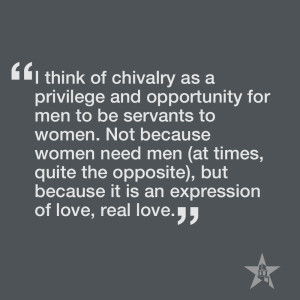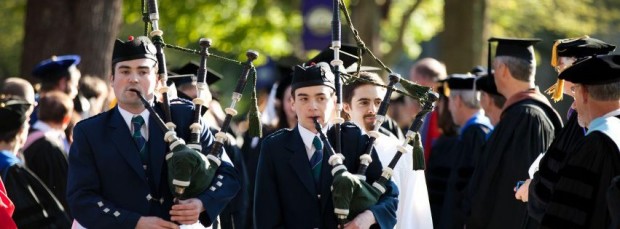By Caleb Kasper
The life of a college student can often be quite busy. Finding time to finish assignments, work through readings, and studying can be challenging for some. As a self-proclaimed “night owl,” I feel like my peak efficiency and focus doesn’t set in until later into the evening. There’s nothing else that I continually fail at doing than getting busy in the morning and early afternoons.
My typical day generally consists of a few classes in the morning and afternoon. Mixed in with chapel and grabbing lunch, there tends to be little time to sit down and get to work. Like many others on this campus, I’m also a student-athlete, so each weekday, I block out roughly two hours of my day for practices, as well as various other times on weekends and weekdays for competition. As a member of the cross country and track teams, I eat dinner with my team most nights. Given this, by the time eight o‘clock rolls around, I’ve likely just begun figuring out what needs to be done for the next day. If I shower before homework, we’re talking 8:30. With a more demanding schedule as a second-semester junior, I’ve been engaged in a lot more focused work this year. When I need to grind and focus, the environment I am in plays a big role. Without the right environment, I struggle to focus.
I’d imagine that a good number of people reading this find a quiet environment with little distraction to be key to focusing. I can’t focus in my room because my bed is always calling my name with open arms. Floor lounges in the resident halls can be hit or miss as well. Chamberlain is okay but usually occupied, and I find the Campus Center to be quite distracting. I realize that others like my sister, recent Houghton graduate Zoey Kasper, prefer a more active study space. Hers consisted of the most comfortable bean bag you’ve ever experienced, disco balls, and music. The bean bag alone would tank any of my plans to be productive. If you share similar preferences to me, though, you may find the library to be the perfect spot. Generally very quiet, not often busy, and an abundance of resources and outlets. Outlets are a must since my laptop battery capacity has significantly deteriorated since my freshman year.
When I choose to go to the library during the week, I roll up around 8-8:30 p.m. I’ve found the library basement to be a preferred spot. Not to be taboo either, but the library’s basement has some of the best bathrooms on campus. When I’m down there I can always get focused and work more efficiently. However, like most things, if it seems too good to be true, it probably is. About 1.5-2 hrs into my work session I am kindly reminded to wrap things up because the library is closing in ten minutes. I pack up my belongings and head out, trying to puzzle when I can cram in everything that I didn’t finish. I’ve also been getting to the point where I just don’t go there that much anymore, because it’s not worth packing up all my stuff and heading over there just to pack it all up again soon after I arrive and either head somewhere else or straight to bed. There also aren’t many convenient times for me to go that are available either.
The library is open Monday through Thursday until 10 p.m., Friday and Saturday until 5 p.m., and is closed Sunday. It was during my Sophomore Year that I decided to make my first personal visit to the Library to do some homework. I remember looking up the hours just to see what they were. I was shocked to see that at 10:11, the library had already been closed for 11 minutes. I always thought that college libraries were open 24/7 so that students always had a quiet space to read or work or get away from their roommate who likes cats too much. Quite honestly, I think the library should be open 24/7, or at least open for students to use later, especially on weekends. Obviously, the library can only be staffed during the day, but couldn’t it be open longer for studying?
This is especially true during finals season. As somewhat of a procrastinator, the time during and surrounding finals week becomes extremely busy. It’s also a time where I am consistently convinced that it’s time to drop out, yet I keep coming back for more. All of the work that I had put off during the semester comes back to confront me and there is a looming sense that there’s more to get done than time in the day. Not having access to the library while working late can be highly inconvenient and frustrating during finals.
I think the student body could greatly benefit from a review of the library hours and possibly extending them. For all the student-athletes, procrastinators, science majors (praying for you all), night-owls, all-nighters, or whatever reasons you’re up late doing homework, you should have the freedom and accessibility to study in a quiet space whenever you need to. Everyone has late nights. ★


 We celebrate that Christ has come, yet in the same story Herod is slaughtering the innocents, and the holy family flees to Egypt as refugees. There is an expectation of peace, and an “already but not yet” tension. How can we celebrate Christmas, yet witness in faithfulness that acknowledges the tension?
We celebrate that Christ has come, yet in the same story Herod is slaughtering the innocents, and the holy family flees to Egypt as refugees. There is an expectation of peace, and an “already but not yet” tension. How can we celebrate Christmas, yet witness in faithfulness that acknowledges the tension?
 Undoubtedly, acts of chivalry can be easily confused for sexism or paternalism, where, at times, similar actions to chivalry can be driven from the idea that men need to help women because of their superiority. It is quite obvious that there are a number of men who would agree with this false need. It is because of this that I will not discount misunderstandings. While one man may walk around the vehicle to open the door for a woman, thinking to himself, “I better help, or else I’m sure she’ll end up hurting my car…or herself,” another man may do the same action while thinking quite differently, “I want to serve this woman, whom deserves all that I can give.” The differences are, of course, the intentions of each man. Performing chivalrous deeds don’t make a man chivalrous; the heart must align with the action (similar to that of 1 Corinthians 13:1.) A chivalrous man would not believe that he is superior to a woman, as it would directly conflict with our starting point of meekness,which, again, is synonymous with humility. Over time, I believe that paternalistic men (like the man in the first example) will have their wrong intentions brought into the light, based off of their other surrounding actions. This is where we can find distinction.
Undoubtedly, acts of chivalry can be easily confused for sexism or paternalism, where, at times, similar actions to chivalry can be driven from the idea that men need to help women because of their superiority. It is quite obvious that there are a number of men who would agree with this false need. It is because of this that I will not discount misunderstandings. While one man may walk around the vehicle to open the door for a woman, thinking to himself, “I better help, or else I’m sure she’ll end up hurting my car…or herself,” another man may do the same action while thinking quite differently, “I want to serve this woman, whom deserves all that I can give.” The differences are, of course, the intentions of each man. Performing chivalrous deeds don’t make a man chivalrous; the heart must align with the action (similar to that of 1 Corinthians 13:1.) A chivalrous man would not believe that he is superior to a woman, as it would directly conflict with our starting point of meekness,which, again, is synonymous with humility. Over time, I believe that paternalistic men (like the man in the first example) will have their wrong intentions brought into the light, based off of their other surrounding actions. This is where we can find distinction.


